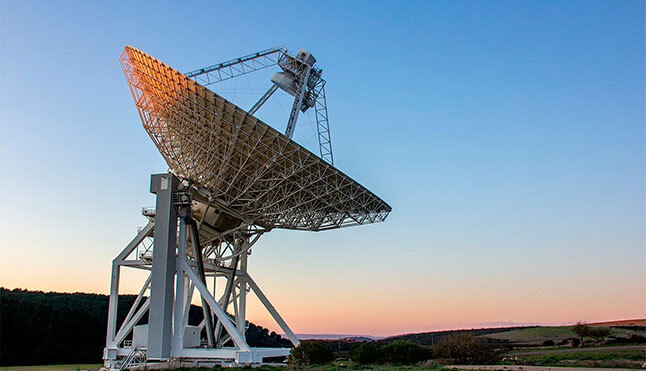
Currently most asteroids approaching Earth are detected by optical telescopes. These, although they have their utility, do not offer as much information as a radiofrequency telescope since visible light does not allow to obtain as much information. China has a better plan for detecting asteroids: a radar system to analyze everything that comes close to Earth. A better radar system than the United States.
According to SCMP, a team of military and government researchers in the country have urged the construction of this system. It would be the "largest radar system on the planet" by using antennas in different parts of the country to monitor asteroids that may be a threat.
Currently only the United States has one of these systems with the Goldstone radar in California, previously the Arecibo Observatory also helped it until it was shattered. Relying only on the United States is not something that the Chinese authorities like, who seek the independence and leadership of the country at the international level in all possible areas.
China's proposed system would use about four or five 35-meter-diameter radio antennas to send radio beams into space. The signals that it would return by reflection on objects in space would be collected by antennas deployed throughout the country. They indicate the presence of possible antennas in cities such as Jiamusi, Beijing, Tianjin, Shanghai and Kunming.
The “but” of planetary radars
Interferences. Interference is the big problem with radio telescopes. It is for this reason that radio telescopes are generally found in deserts or far from any human activity around them. Radio telescopes, in addition to being able to receive interference signals from nearby devices, can affect the operation of vehicles and other devices by emitting their signals.
China would probably install these antennas somewhere where human activity is minimal and population density is low. The ideal candidate seems to be the Xinjiang area. On the other hand, the possibility of equipping FAST (the world's largest radio telescope) with capabilities to function as planetary radar was also raised, but updating it would be too expensive.
China, as the years go by, is becoming a superpower in space exploration. Recent evidence of this is his landing on the far side of the Moon, having the largest radio telescope in the world, bringing lunar samples or his mission to Mars that will try to land on the neighboring planet in a few days.
xataka.com
